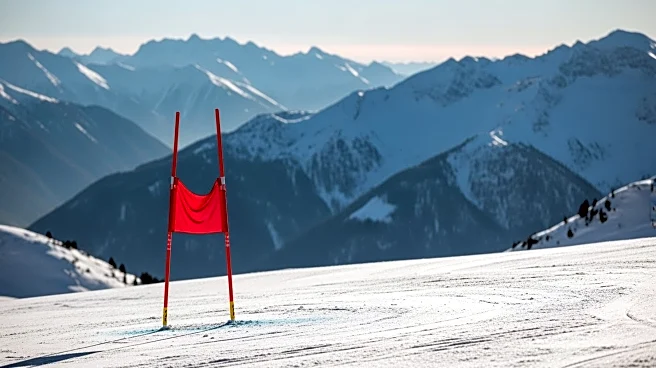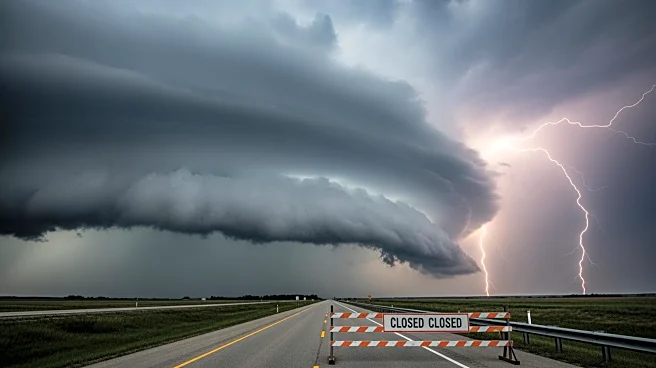What's Happening?
Lucas Pinheiro Braathen has taken a commanding lead in the opening run of a men's World Cup slalom in Levi, Finland. This positions him for potentially Brazil's first-ever win in a top-level ski race, just months before the Milan Cortina Olympics. Braathen finished
0.41 seconds ahead of 2022 Olympic champion Clement Noel of France and 0.49 seconds ahead of his former Norwegian teammate Timon Haugan. Braathen, who debuted on the World Cup in 2018, won five races before clinching the season-long slalom title in 2022-23. He fell out with the Norwegian ski federation over personal marketing rights, took a break, and returned last season competing for Brazil, his mother's native country. Brazil has never won a World Cup race or a medal at the Olympics or world championships in Alpine skiing.
Why It's Important?
This development is significant as it marks a potential historic achievement for Brazil in Alpine skiing, a sport where the country has not traditionally excelled. A win by Lucas Pinheiro Braathen could inspire greater interest and investment in winter sports within Brazil, potentially leading to increased participation and development of athletes in disciplines outside the country's typical sporting focus. It also highlights the impact of personal marketing rights on athletes' career decisions, as seen in Braathen's switch from Norway to Brazil.
What's Next?
If Braathen secures a win, it could lead to increased visibility and support for Brazilian athletes in winter sports. The upcoming Milan Cortina Olympics may see heightened expectations for Braathen and potentially more Brazilian athletes participating. The Norwegian ski federation's handling of athlete marketing rights may also come under scrutiny, influencing future policies and athlete decisions.
Beyond the Headlines
Braathen's situation underscores the growing importance of personal branding and marketing rights in sports, which can affect athletes' affiliations and career paths. This trend may lead to more athletes seeking autonomy over their image and sponsorship deals, potentially reshaping traditional national team structures.















